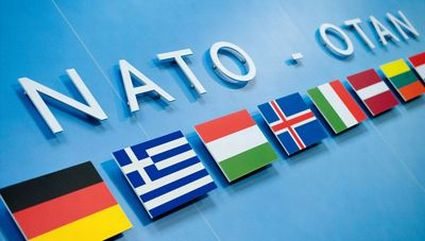NATO leaders and those of partner nations will finalize major decisions about Afghanistan and the future of the alliance during the NATO summit in Chicago this weekend, George Little, acting assistant secretary of defense for public affairs, said here today.
Little told reporters at a Pentagon news conference that the situation in Afghanistan is not bleak. “We are seeing a narrative of success” in the country, he said.
President Barack Obama will host the May 20-21 summit in his home city, and Defense Secretary Leon E. Panetta will be part of the U.S. delegation to the talks. Panetta will participate in discussions with heads of state and government, and will attend three North Atlantic Council sessions, Little said.
The first session will look at the capabilities the alliance needs in the 21st century. The second, on the International Security Assistance Force in Afghanistan, will include representatives of non-NATO partners as well as NATO members. The third session is with NATO partners who participated in Libya operations.
Participants in the summit will discuss how to work better with partner nations in future operations, Little said.
“This summit comes at an important and historic time for the alliance,” Little said. “NATO nations have come a long way together in recent years, and allies and partners can take stock of that and look for ways to strengthen cooperation in the future.”
Afghanistan will be the major focus of the summit, Little said, and Panetta is confident the alliance will demonstrate its commitment in finishing the job there. That means revalidating the principle agreed to during NATO’s November 2010 summit in Lisbon, Portugal: “In together, out together,” he added.
Last year was a turning point in Afghanistan, and NATO and Afghan forces are building on that progress, Little said. “The Taliban have been weakened,” he said. “Al-Qaida’s organization has been decimated, and violence levels are down across the country, including in Helmand and Kandahar provinces in the south.” The southern provinces are the traditional home of the Taliban.
Last weekend, Afghan President Hamid Karzai announced the third tranche of regions that will transition to Afghan security forces control. When it’s complete, more than 75 percent of Afghans will be under the security provided by Afghan soldiers and police.
“All of that has sent a clear signal that the campaign is on track and that the international community remains committed to helping Afghanistan secure and govern itself,” Little said.
Summit participants, he added, will discuss how to continue the transition to Afghan security lead, will detail plans to support sustainment of the Afghan national security forces, and will determine the long-term relationship NATO will have with Afghanistan.
“All of these steps will help define how we can responsibly conclude the war in Afghanistan while achieving our objectives and building a long-term partnership with the Afghan people,” Little said.










